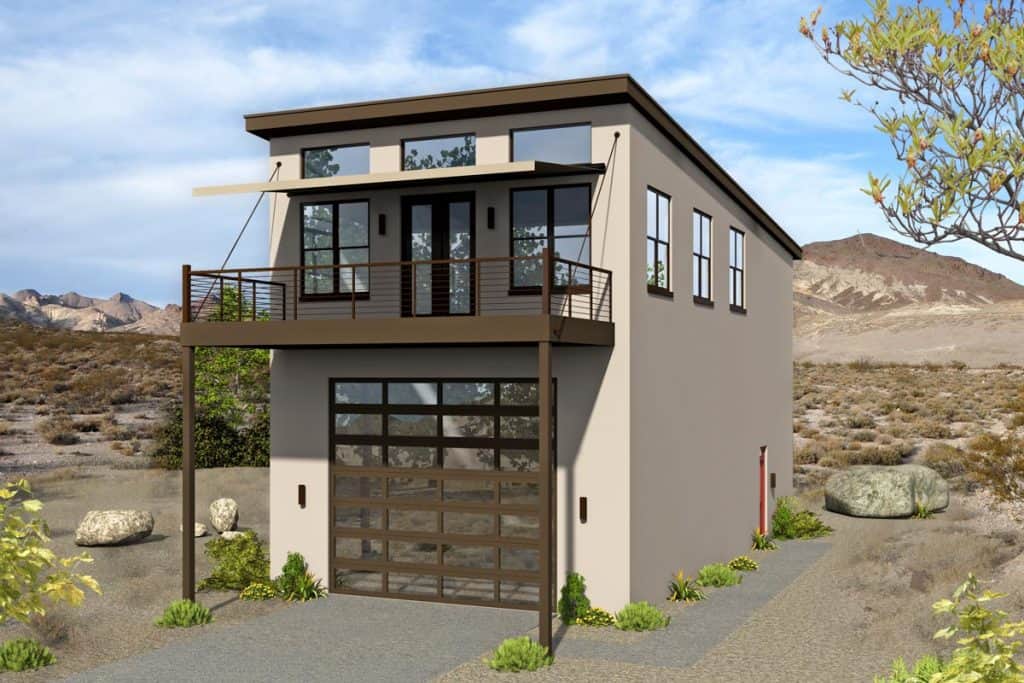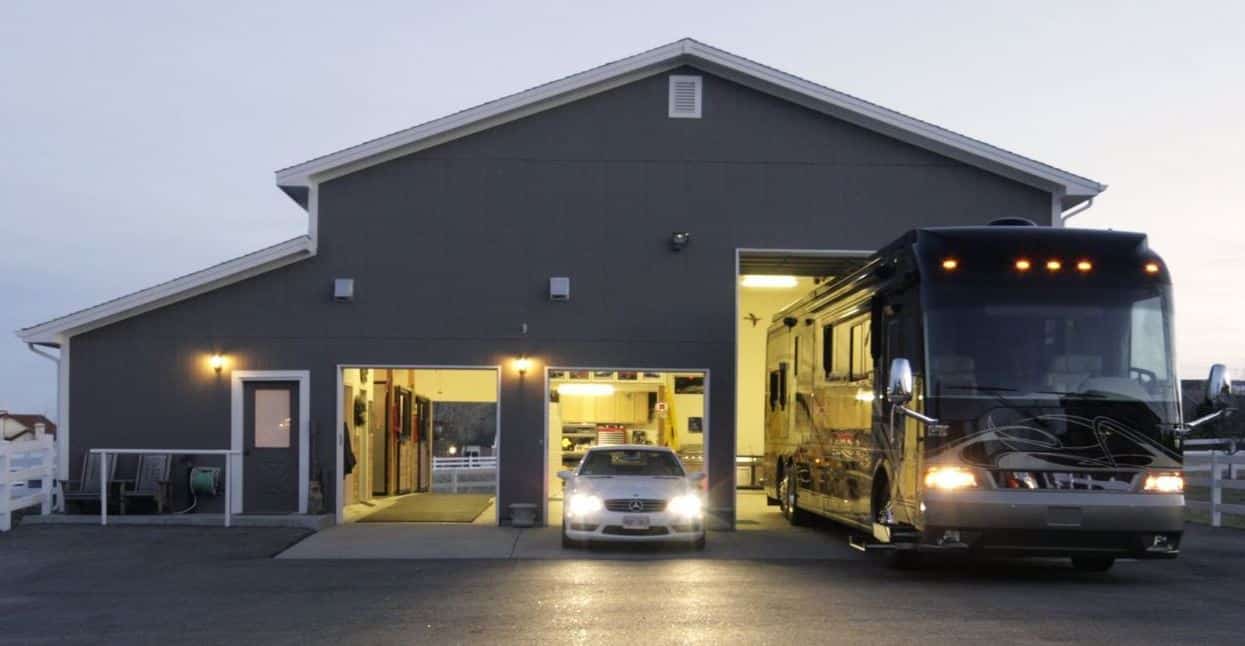If you own a recreational vehicle and do not use it fulltime, you need somewhere safe to park it over the rest of the year. For some, they rent an RV storage unit. For others, they prefer to keep their recreational vehicle at home.
As you probably already are well aware, maintaining a motorhome can involve a lot of work. But when you store your RV in a metal motorhome garage, you can protect it and reduce the amount of maintenance you have to perform on a routine basis.
Save Up To 33% On Your Kit
Key Benefits of Metal RV Garage Buildings
- Protect your RV from leaks and mold. Even if you do not drive your motorhome much, it can sprout leaks pretty much effortlessly. If you store it in a sheltered garage, you do not need to worry about rain leaking in and causing wood rot throughout the year.
- Keep the sun off your RV. If you leave a motorhome out in the sun, the sun can gradually bleach the paint. If the sun strikes the rig unevenly, this can lead to lighter and darker patches. RV paint is incredibly expensive, so keeping your RV in full shade is a great way to protect your paint and save money.
- Prevent pests from getting into your motorhome. Rodents and insects do not eat metal, so a fully enclosed metal garage can also help keep them out of your RV.
- Secure your RV and what is inside it. With a full enclosure that you can secure, you will be able to keep intruders away from your motorhome.
- Metal is the eco-friendly, cost-effective, durable, low-maintenance material for an RV storage building.
RV Garage Plans
How To Choose The Dimensions for Your RV Garage?
How large of a space do you need for your RV?
To know the size your plans will require, you first need to know the exact dimensions of your motorhome.
How tall is the average RV?
The average RV height for a class A motorhome is about 10 feet, while the average length for one is about 33 feet.
Class C motorhomes also are around 10 feet tall on average, and about 28 feet in length. For both, you’ll need around 14 feet of clearance height.
Class B motorhomes (campervans) are smaller, about 8 feet tall on average, requiring about 12 feet of clearance. In length, they typically are between 16-21 feet.
But to build the right size RV garage, you really need to know the exact dimensions for your specific vehicle. This is obviously much different than a traditional garage kit. The garage door size must be able to accomodate the extra height with of your RV.
Also, make sure you put in extra room for storage and equipment if you need it. We have seen a few builds that include living quarters as well. Keep that in mind if you are considering building from the ground up soon.
Here is a great example of an RV garage home from Architectural Designs.

How Much Does an RV Garage Cost?
The exact cost for an RV garage depends on its dimensions, features, foundation and more. For a rigid frame design, you can expect around $7 per square foot as a starting cost. For a Quonset type design, the starting price would be around $5 per square foot.
Even if you have only basic skills in construction and regular tools, you may be able to build your metal RV garage yourself if you order a kit.
Where to Order RV Kits?
Ready to give your recreational vehcile the protection it deserves?


